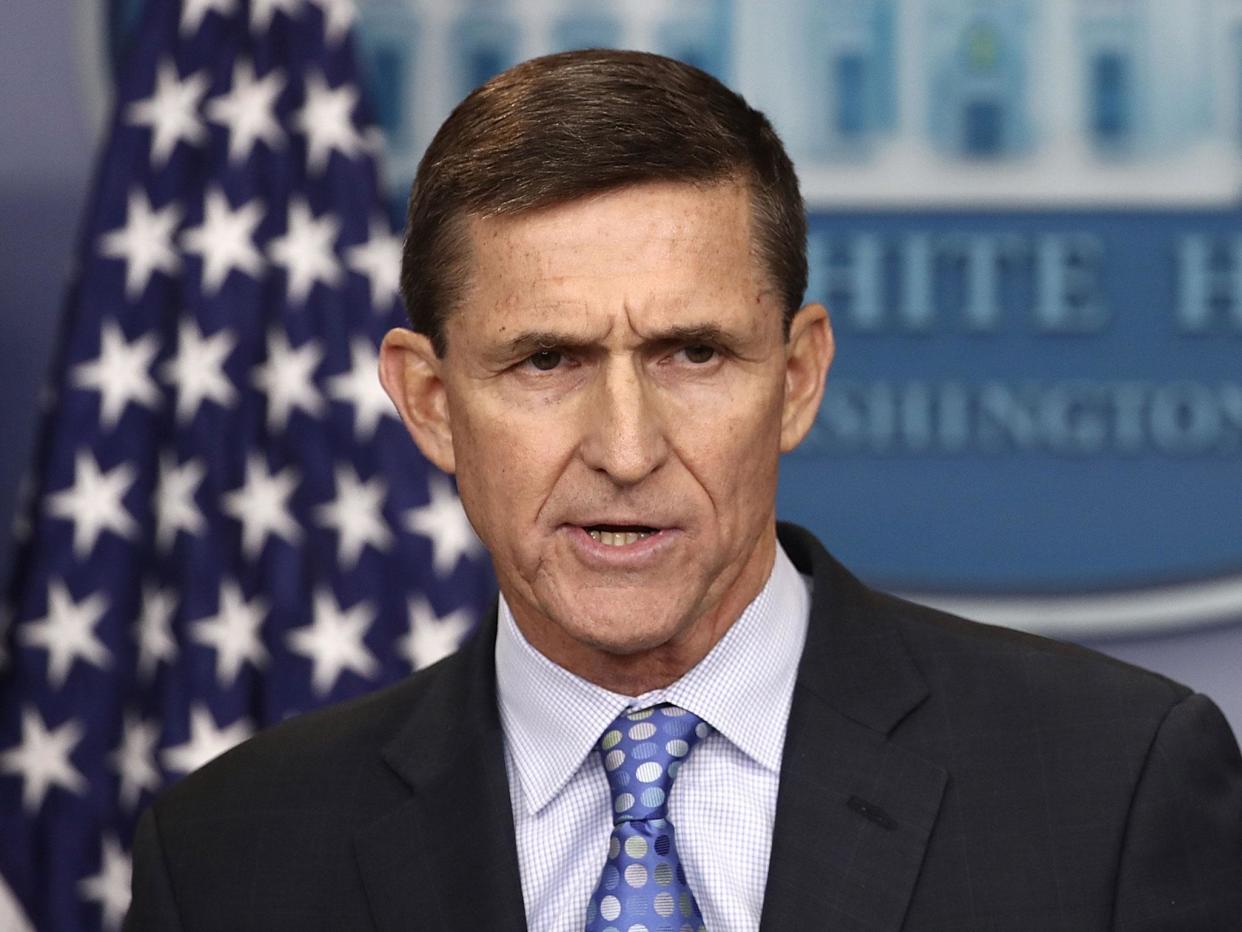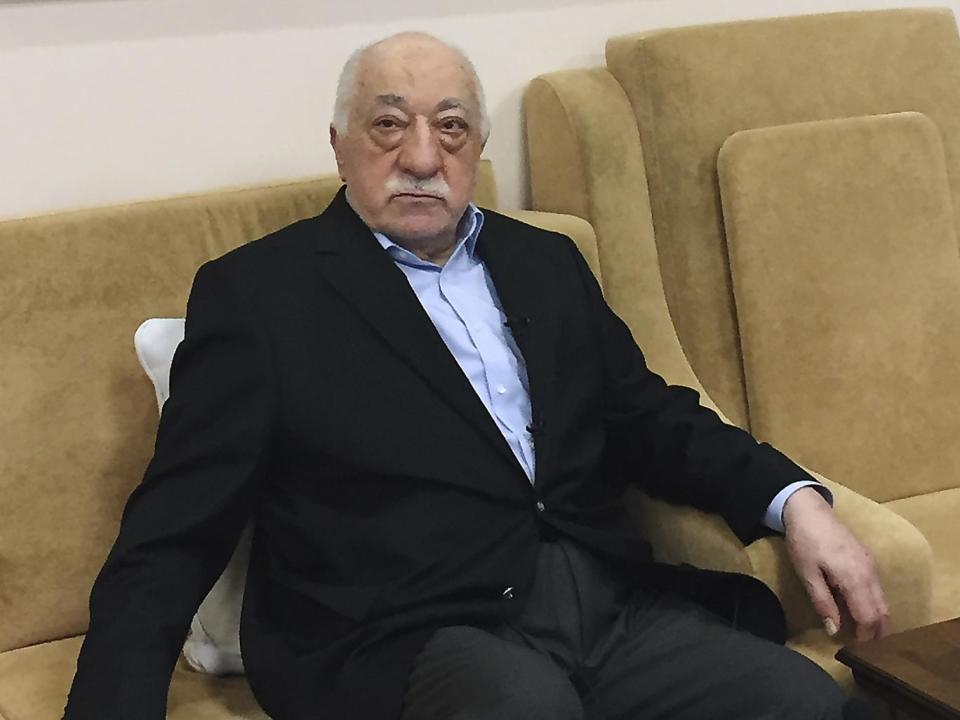Donald Trump's former national security adviser ‘discussed removing Gulen from US', former CIA director says

Donald Trump’s former national security adviser has denied discussing the removal of an exiled cleric from the US to face charges over an attempted coup in Turkey.
Michael Flynn was forced to resign from his post after giving “incomplete information” on discussions over sanctions with the Russian ambassador and is one of several figures being investigated over ties with the Kremlin.
James Woolsey Jr, the former director of the CIA, said Mr Flynn had met with senior representatives of Recep Tayyip Erdogan’s government in the run-up to the US election on behalf of his Flynn Intel Group.
Mr Woolsey, who was a Trump campaign adviser at the time, advised late to the meeting to find Mr Flynn and Turkish officials allegedly discussing Fethullah Gulen.
“It looks as if there was at least some strong suggestion by one or more of the Americans present at the meeting that the United States would be able, through them, to be able to get hold of Gulen,” he told CNN.
Mr Woolsey told The Wall Street Journal he arrived in the middle of the conversation but described the basic plan as a “covert step in the dead of night to whisk this guy away”.
He said he alerted American officials to the alleged conversation, which he called “suspicious and concerning”.
Mr Gulen, a Pennsylvania-based Turkish cleric has been accused of fomenting a violent attempted coup against President Erdogan in July but denies the charge, although his “Hizmet” movement admits some of its supporters may have been involved.
A lack of evidence caused Barack Obama’s administration to refuse Ankara’s calls to extradite Mr Gulen but there has been speculation that Mr Trump may not share the position.
A spokesperson for Mr Flynn denied he or anyone else at the meeting had “discussed physical removal of Mr Gulen from the United States”.
“No such discussion occurred,” Price Floyd added in a statement. “Nor did Mr Woolsey ever inform General Flynn that he had any concerns whatsoever regarding the meeting, either before he chose to attend, or afterwards.”
Mr Flynn heavily criticised Mr Gulen in an article published on election day in November, arguing the US should not give him a “safe haven” and treat Turkey as a priority and a friend.
Justice Department documents later revealed that the article was linked to research conducted for a Turkish-owned company whose owner is an ally of Mr Erdogan.
Inovo BV paid Flynn Intel Group $530,000 (£425,000) for work he admitted may have “principally benefitted” the Turkish government in official filings.
Sean Spicer, the White House spokesman, said Mr Trump did not know Mr Flynn was acting as a “foreign agent” when he was hired after the documents emerged.
Anyone representing the interests of foreign powers in a political capacity must declare their interest to the US government under the Foreign Agents Registration Act.
Refusals by the American government and much of Europe to recognise the Ankara’s accusations against Mr Gulen has worsened relations with Turkey amid Mr Erdogan’s anger over international criticism of security crackdowns and purges in the military, government and media since the coup.

A report by the House of Commons Foreign Affairs Committee found that evidence of the Gulen movement’s involvement in the group was “anecdotal and circumstantial”, as was evidence used for its terrorist designation by the Turkish government.
“While some of the individuals involved in the coup may have been Gülenists, given the large number of Gülenist supporters and organisations in Turkey, it does not necessarily follow that the Gülenists were responsible for the coup or that their leadership directed the coup,” MPs concluded last week.
The Turkish President hit out at the head of Germany’s BND foreign intelligence service on Friday for suggesting Berlin is not convinced that Mr Gulen orchestrated July’s coup.
Bruno Kahl told Der Spiegel magazine that Turkey tried to “convince us on a number of different levels. But they haven’t yet been successful”.
Turkey has been accused of illegally sending agents to spy on followers of the Gulenist movement around in Germany, which is also one of several countries locked in a dispute with the Erdogan government over rallies in support of next month’s constitutional referendum.
Switzerland has also started a criminal investigation into alleged Turkish espionage at events held at the University of Zurich.

 Yahoo News
Yahoo News 
